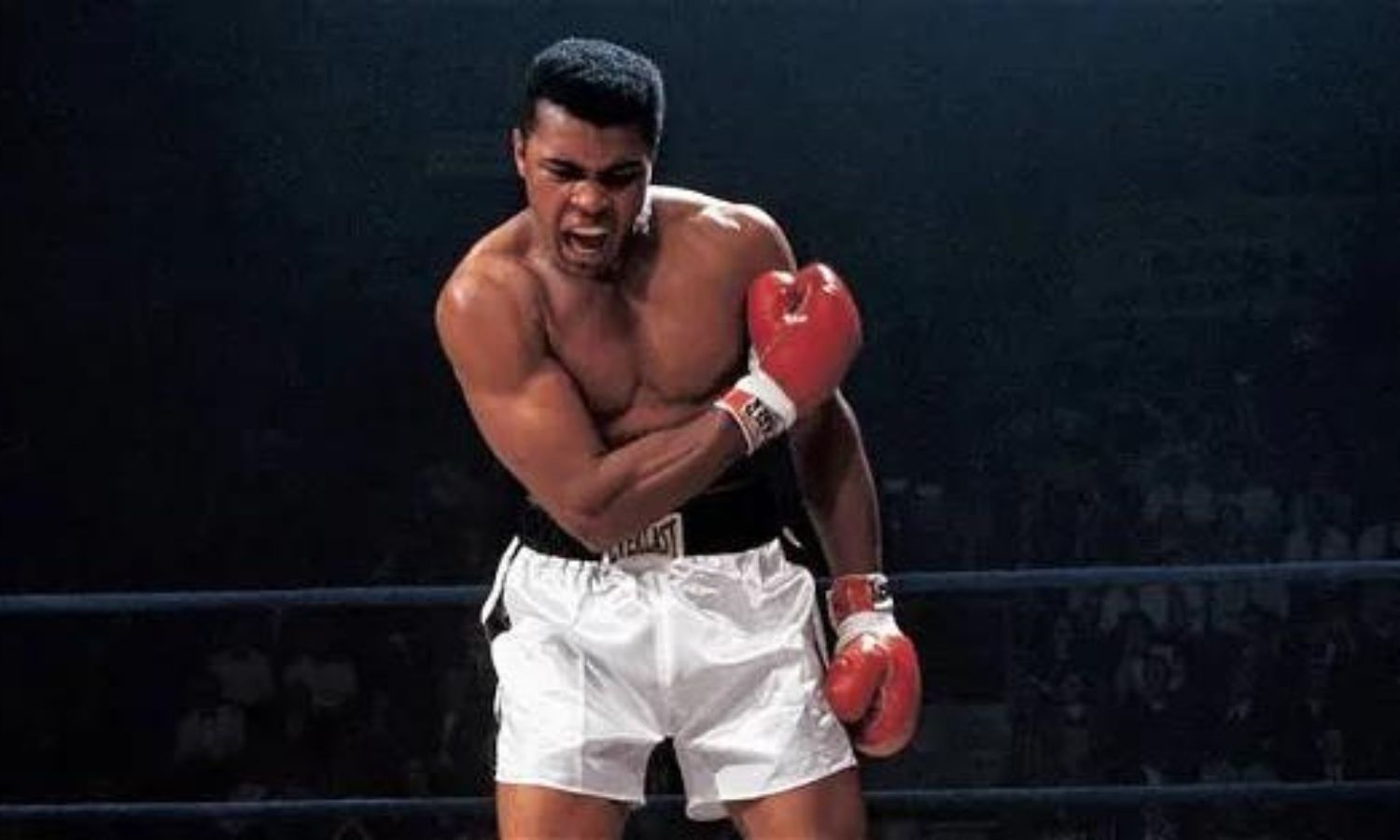Muhammad Ali, originally known as Cassius Marcellus Clay Jr., wasn’t just a professional boxer; he also stood out as a social activist and a prominent sports figure in the 20th century. His journey was a blend of triumphs, challenges, and unwavering beliefs, leaving an enduring imprint on history.
Early Life and Boxing Success
Born on January 17, 1942, in Louisville, Kentucky, Ali found his passion for boxing at 12 and swiftly climbed the amateur ranks. At 18, he clinched gold in the light heavyweight division at the 1960 Summer Olympics in Rome and transitioned to the professional circuit later that year.
Emergence of ‘The Greatest’
Ali’s dominance in the ring was undeniable. By the age of 22, he had vanquished Sonny Liston to claim the world heavyweight championship—a title he would secure thrice in his career. Renowned for his distinctive fighting style, Ali dazzled with his speed, agility, and the famous “Ali Shuffle.”
Defiance Against the Draft
In 1966, amidst the peak of his career, Ali made waves by refusing military draft, citing his religious convictions and opposition to the Vietnam War. This courageous stance led to his arrest, the forfeiture of his titles, and a four-year exile from boxing during his prime years.
Comeback and Legendary Bout
Ali’s conviction was overturned by the Supreme Court in 1971, marking his return to the ring. Among his remarkable feats was the 1974 showdown in Zaire, famously dubbed “The Rumble in the Jungle,” where he reclaimed the heavyweight crown from George Foreman in an iconic match.
Later Years and Struggle with Parkinson’s
Following his retirement from boxing in 1981, Ali dedicated himself to philanthropy and activism. In 1984, he was diagnosed with Parkinson’s disease, a condition gradually affecting his mobility and speech. Despite his health challenges, he continued to champion global peace and humanitarian causes.
Passing of a Legend
On June 3, 2016, Muhammad Ali breathed his last at the age of 74 in Scottsdale, Arizona. His demise was mourned worldwide, commemorating him as a champion of the people, both inside and outside the boxing arena.
Conclusion
Muhammad Ali’s impact transcended the realm of boxing, symbolizing courage and steadfastness in the face of adversity. His advocacy for civil rights and opposition to the Vietnam War cemented his status as an icon of the counterculture movement. Ali’s magnetic personality, athletic prowess, and humanitarian endeavors serve as a timeless source of inspiration for generations to come.
Ali’s narrative underscores the potency of conviction and the profound influence one person can wield on the world stage. His life teaches us that greatness isn’t just measured by achievements but also by the principles we uphold.
Frequently Asked Questions
What Were Muhammad Ali’s Most Notable Accomplishments in Boxing?
Muhammad Ali’s notable accomplishments in boxing include winning the Olympic gold medal in the light heavyweight division at the 1960 Summer Olympics and securing the world heavyweight champion title three times. Additionally, he is renowned for his historic bouts, notably “The Rumble in the Jungle” against George Foreman.
Why Did Muhammad Ali Decline Military Draft?
Muhammad Ali declined military draft due to his religious convictions as a Muslim and his opposition to the Vietnam War. This decision resulted in his arrest and a four-year suspension from boxing during the peak of his career.
How Did Muhammad Ali Influence Society Beyond Boxing?
Beyond boxing, Muhammad Ali wielded significant influence as a social activist. He championed civil rights and voiced opposition to the Vietnam War, emerging as an emblem of the counterculture movement. Furthermore, he dedicated himself to philanthropy and humanitarian causes following his retirement from boxing.
What Adversities Did Muhammad Ali Encounter in His Later Years?
In his later years, Muhammad Ali confronted the challenge of Parkinson’s disease, diagnosed in 1984. Despite the gradual impact on his mobility and speech, he persisted as a peace ambassador and humanitarian, overcoming health obstacles.
How is Muhammad Ali Commemorated Today?
Muhammad Ali is commemorated as one of the greatest and most influential athletes of the 20th century. His legacy extends beyond his athletic prowess, encompassing his charismatic persona, steadfast principles, and contributions to societal causes, inspiring individuals worldwide.
READ MORE
Who is Jalen Green Dating: NBA Star’s Shocking Baby Mama Revealed!

